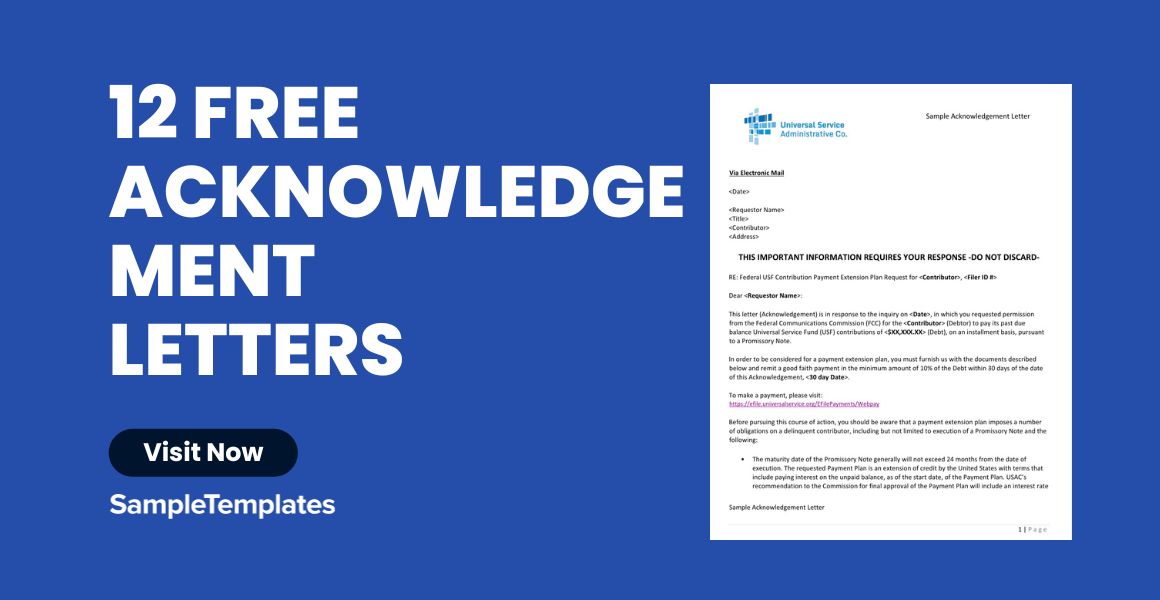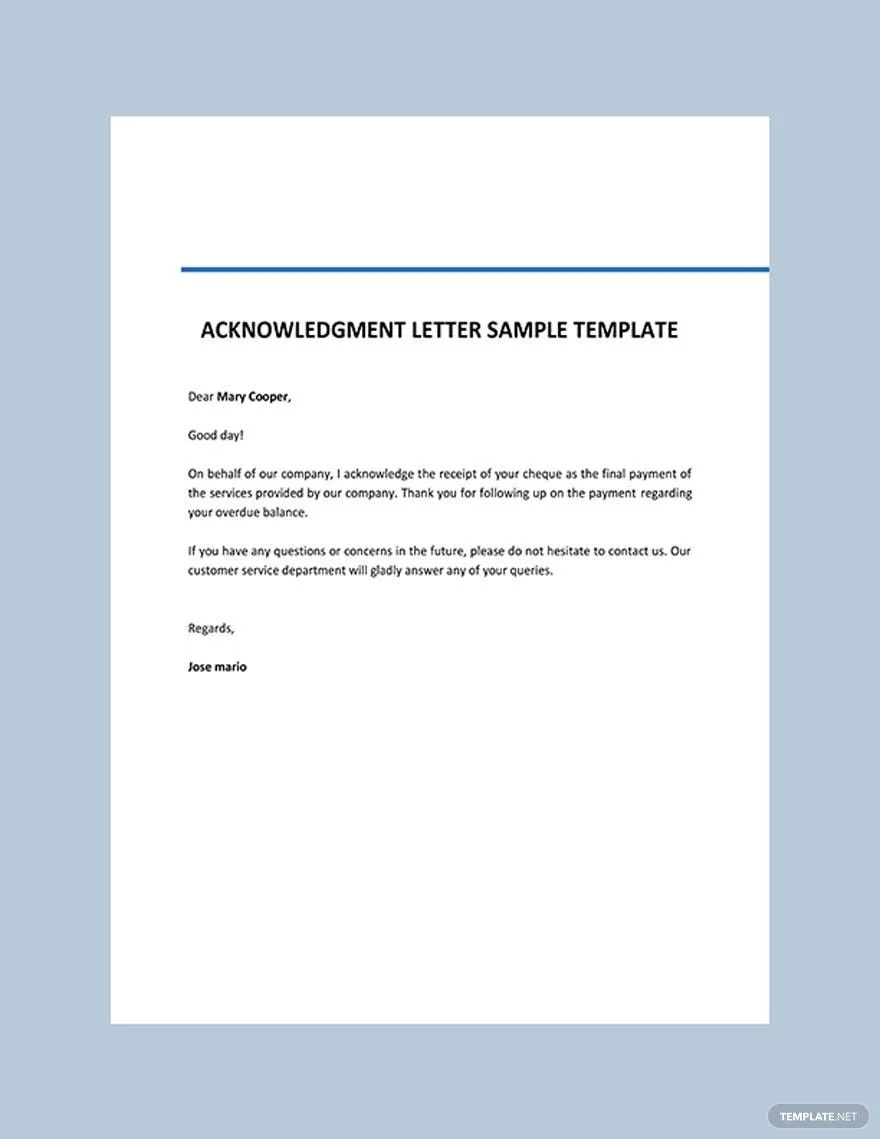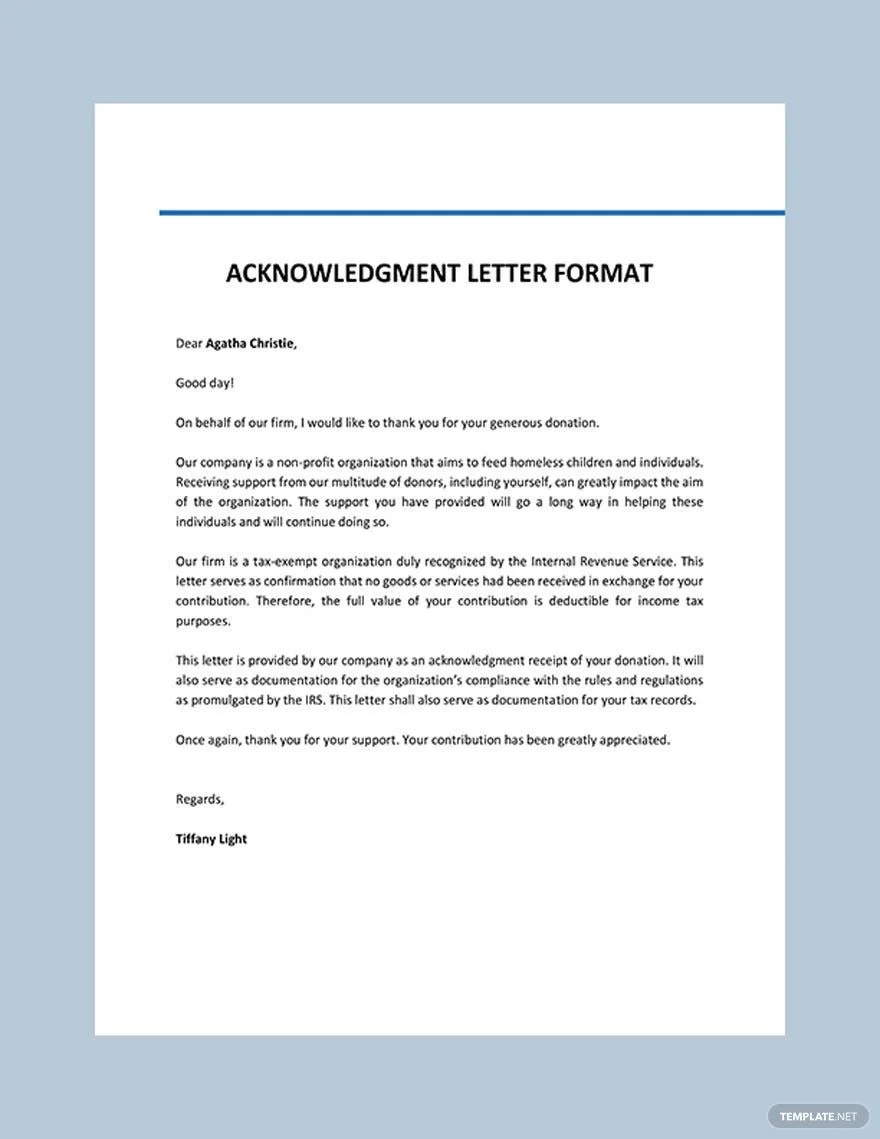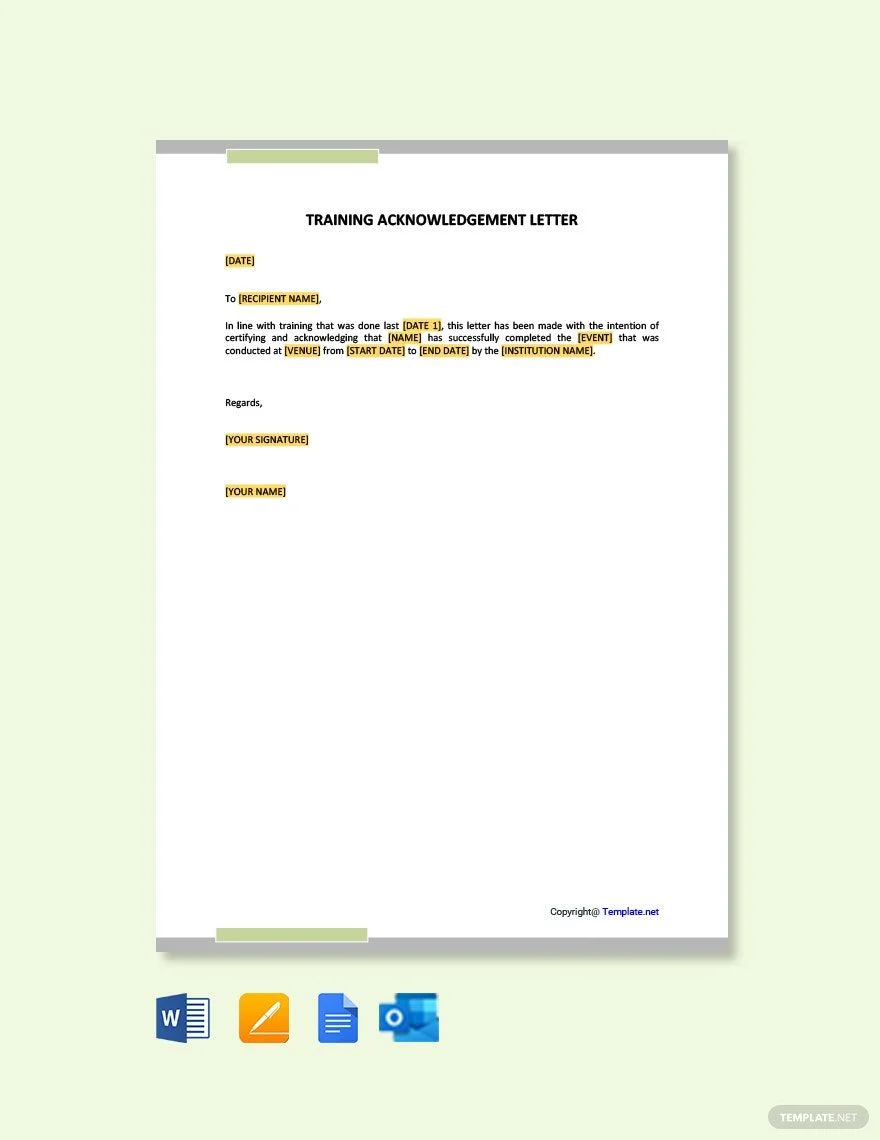

Crafting an acknowledgment letter is an art of expressing gratitude and recognition for support received. Whether it’s for a significant contribution, receipt of a document, or a milestone achievement, acknowledging the gesture is crucial in maintaining positive relationships. Our Sample Acknowledgement Letter Template provides a versatile solution to create a personalized response that is both sincere and professional. From business dealings to academic settings, these templates are designed to fit a variety of contexts, ensuring your message is delivered with the right tone and formality. Explore our collection to find just the right wording to convey your thanks effectively and enhance your professional communication.



An Acknowledgment Letter is a formal document used to recognize the receipt of something or to show gratitude for a service, favor, or product received. In essence, it serves as a professional courtesy extended by one party to another, documenting the acknowledgment and expressing thanks or confirmation.
When it comes to the business world, an Acknowledgment Letter can be used in several scenarios. For example, when a company receives a shipment of goods, an Acknowledgment Letter may be sent to the supplier to confirm the receipt of products. Similarly, upon receiving a job application, a company might send an acknowledgment to the applicant to confirm that their documents have been received and are under review. This form of communication is crucial as it helps to build trust and transparency between parties, laying the groundwork for ongoing professional relationships.
Acknowledgment Letters are not limited to business exchanges. They can also be a part of academic or personal interactions. A student might send one to a professor who has provided a recommendation letter, or an individual might send a letter to a friend or family member who has given a personal gift or support.
The structure of an Acknowledgment Letter is simple yet should be written with care. It typically starts with the date and the recipient’s contact information, followed by a greeting. The body of the letter should clearly state what is being acknowledged and include any relevant details such as dates, specific items, or amounts. If the acknowledgment is for a received service or act of kindness, the letter should convey genuine gratitude and specify how the act was beneficial.
A well-composed Acknowledgment Letter not only confirms the receipt of items or expresses gratitude but also reinforces the professionalism and credibility of the sender. It acknowledges the effort and cooperation of the other party, fostering a sense of appreciation and potentially encouraging future interactions. Additionally, it provides a written record that can be referred back to if necessary, which is particularly important in legal and financial matters.
In conclusion, an Acknowledgment Letter is a versatile tool that plays a significant role in various forms of exchange. Whether it solidifies a transaction, validates the receipt of information, or simply serves to express thanks, its importance in smooth and effective communication cannot be understated. With the digital era making rapid exchanges more common, taking the time to craft such a letter can set a strong foundation for respect and professionalism in any relationship.